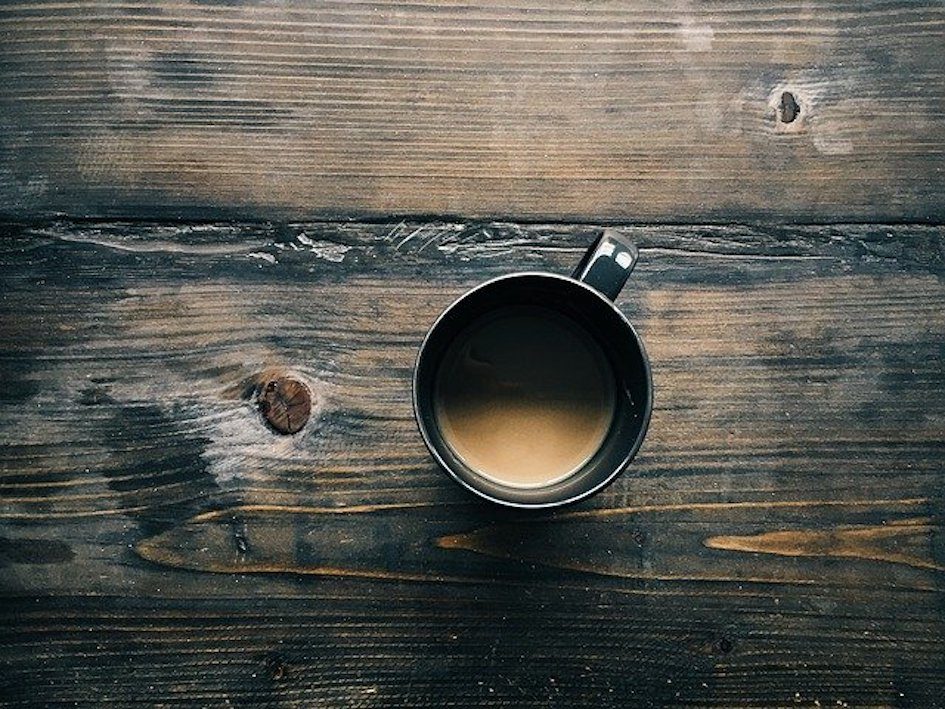
In this post, we’ll be talking about the physiological effects of caffeine on your body and explore how caffeine works. If you’ve ever asked yourself the question “Should I drink coffee?”, I think that by the end of this article you’ll know a bit more about the behaviour of caffeine and you may regulate your caffeine consumption accordingly.
Life Starts After Coffee!
I once saw this written on a blackboard in front of a little cafe in London. I couldn’t agree more with that statement, especially because it was 7 in the morning, and I truly didn’t feel much alive yet. This cheeky little slogan made me buy their coffee, although I had already had one at home. Sometimes it only takes one witty slogan to steer you in a direction of an unhealthy choice.
Not long after this, I encountered another funny one on a busy road in London Islington. It said: “This is the last coffee shop for the next 2500 miles”. Impossible to resist that one!
And one more, in Shoreditch, at the beginning of December:
“I dream of flat white Christmas…”
Good or Bad?
There are many different opinions as for whethere coffee is good or bad for you. Most of us love coffee (including myself). I find the smell of freshly ground coffee irresistible. It makes me think “If it smells so divine it must surely be God’s gift to us!”
Ok then, let’s start with the good news for the coffeeholics.
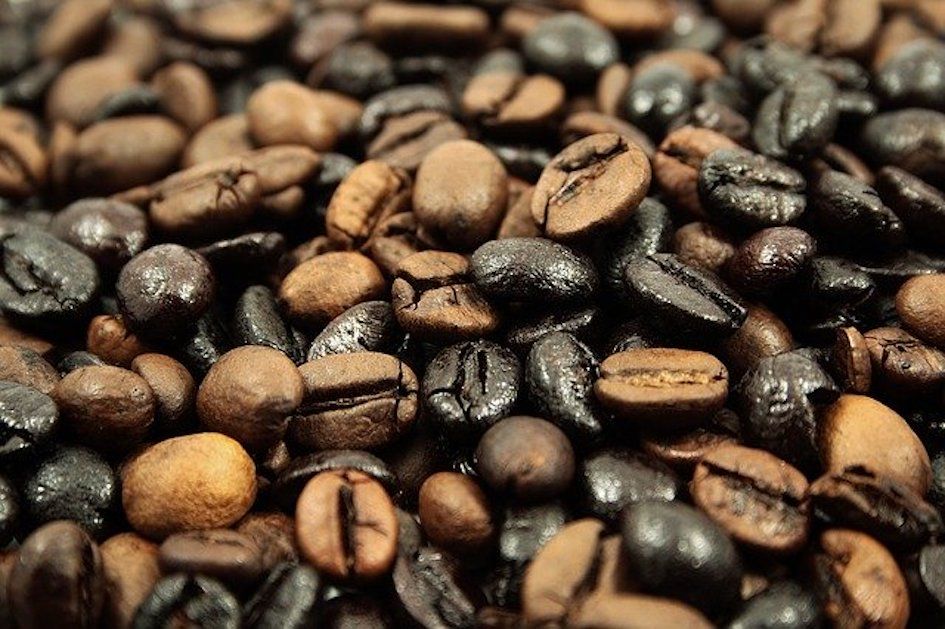
The Benefits of Drinking Coffee
It is believed that when coffee is consumed in moderation, without sugar and well before noon, it can benefit your system by sending more oxygen to your brain, speed up your reflexes, making you more alert, boost up your productivity and improve your mood. Some studies go even that far to claim that coffee can contribute to the prevention of cancer and Type 2 Diabetes.
The Dark Side of Coffee
However, it is equally known that drinking coffee can result in a number of problems such as feeling edgy and nervous, experiencing insomnia or even panic attacks. I once had a major panic attack after drinking 3 double espressos before a flight. (I was clearly asking for trouble by doing that!)
Depressive moods, trouble with sleep, panic attacks, very frequent colds, and craving for carbohydrates were very familiar to me during my thirties. It was eye-opening to learn that part of these issues may have been caused by my over-consumption of caffeine.
The best way is to gain some understanding how caffeine works, and then you can make better choices regarding when and how often to drink coffee, or if to drink it at all.
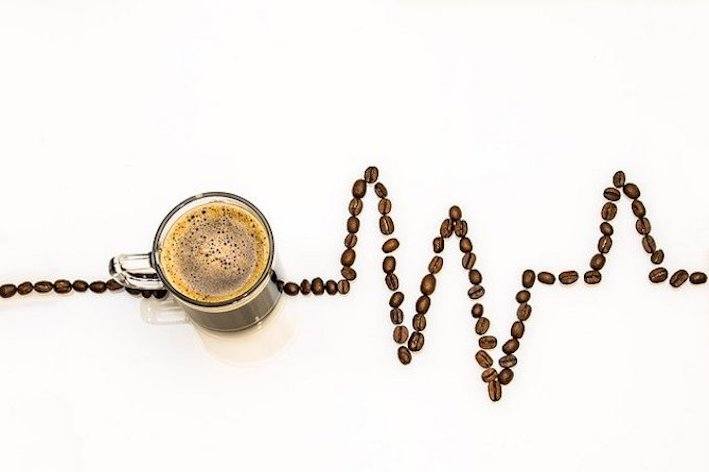
How Caffeine Works
I used to drink coffee a lot because I thought it was stimulating my body, thus giving me more energy. But when I discovered how caffeine works, it kind of put me off from drinking it too often.
Caffeine and Adenosine
Have you ever wondered what’s behind the stimulating effect of caffeine?
When caffeine enters our body, it binds to the receptors of a chemical called adenosine. Adenosine is a neurotransmitter that prepares our body for sleep by calming us down by slowing down our neural activity. It also dilates the blood vessels to ensure good oxygenation while we sleep. Basically, this chemical is responsible for giving us the ‘go to bed!’ signal so we can recharge our body.
But caffeine prevents adenosine from binding to its receptors. It blocks the molecules of adenosine from entering them. As a result, we don’t feel tired when we would be naturally.
But why does caffeine bind to the adenosine receptors in the first place? Because, interestingly enough, it is very similar to adenosine shape-wise. You could compare it to a key fitting into a keyhole. The key of caffeine has almost the same shape as the key of adenosine – thus it can easily block the adenosine receptor (keyhole) and molecules of adenosine just end up piling up in front of its own receptors, without being able to enter them. (Does it also make you feel rather sorry for them..?)
Caffeine Makes Us Deaf To Our Body’s Signals
Our body is wise, and so with the help of adenosine, it makes us tired and sleepy when it needs to rest and recharge – just as the battery in your mobile, which will signal when it’s time to plug it in a charger. However, when caffeine blocks the adenosine receptors, we may be naturally tired and in need of rest, but we don’t feel it, because adenosine has been blocked and cannot do its job – i.e. to calm our nervous system and make us tired.
Consequently, we feel the stimulating effect of caffeine, while, in reality, our body really needs to recharge by having a nap or a deep rest, but we don’t feel ‘on top of the world’ and keep going at our full speed. Imagine what would happen to your mobile if it kept telling you that your battery is at 100% while in reality, it was 2%, and you kept using it recording videos, using multiple apps, having conference calls etc. At one point, it would inevitably shut down, when you’d need it the least.
The same happens with the ‘caffeine crash’. When the receptors of adenosine are unnaturally blocked by caffeine, adenosine will build up, and in the end we’ll end up more tired than if we hadn’t drunk any coffee at all.
Built-up Adenosine Will Catch Up With You
Notice that if you are on a several days’ coffee binge, that you often wake up tired. Even if you had enough hours to sleep, you’re not rested. Why’s that? Because by allowing caffeine to block all the adenosine receptors, there’s a lot of spare adenosine floating by, and once caffeine wears off, all the excess adenosine is suddenly fere to do their job, i.e. yelling at you how desperately exhausted you are.
You probably wouldn’t mind this at half-past eleven in the evening, but at nine in the morning, after good eight hours of sleep, it’s not good news. And this is caused by that nice buzz of those few double espressos of yesterday.
So what do you usually do when you feel tired because of all that excess adenosine and just can’t get going in the morning? You usually reach for more coffee. And that, of course, creates even more blocked receptors, and more floating sleep-inducing chemicals that will hit you even harder later on. You have just caught yourself in a vicious circle.
What’s worst, you no longer experience that nice buzz that you get when you drink coffee only once in a while (as I do, after having learned my lessons). Now you either don’t feel anything or get this kind of wired, edgy feeling, verging on panicking, because your brain is not allowed to rest. It’s being ruled by caffeine, which can now dictate your moods and play quite wildly with your energy levels.
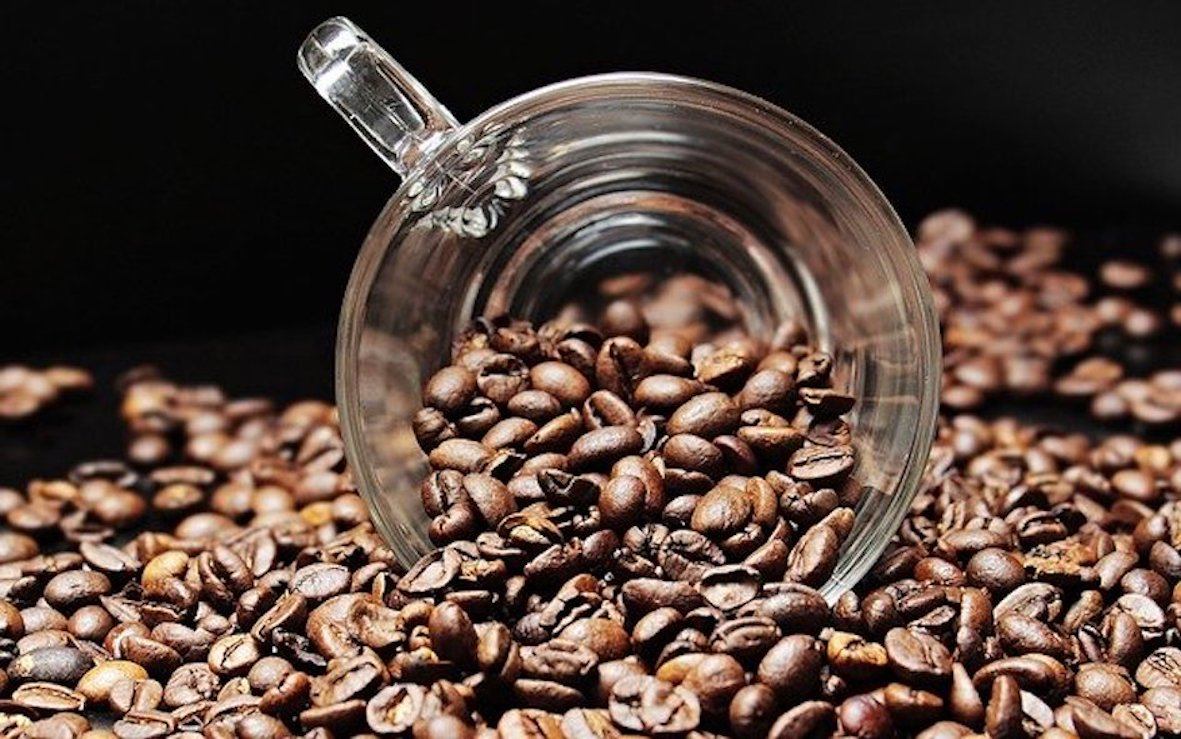
Caffeine Fools You About Having Energy
So it’s good to remember that caffeine does not give us natural energy, it only conceals our tiredness. In a way, caffeine is ‘hijacking our nervous system’ by telling us we are not tired. It will ‘lie to us’ about feeling full of energy and then hit us with sudden exhaustion.
As much as I love coffee, I don’t like this ‘sneaky behaviour’ of caffeine. The idea that some external substance is bullying the molecules in my body by blocking their own receptors makes me want to start a petition for the rights of adenosine. But, of course, as soon as I smell the divine aroma of coffee, I forget all about it..!
Dopamine and the Comedowns
We love coffee because it can almost immediately improve our mood. This is caused by the release of dopamine, the ‘get going’ chemical that can cause pleasurable states that we want to experience every day, and which is the reason why the Starbucks, Costa or Nero signs have such magnetic effect on a lot of us.
But once the rush we get from artificially released dopamine is over, we can experience fatigue and low moods, even depression.
Caffeine Speeds Up Neural Activity
Do you know that jittery or even anxious feeling after you’ve had a strong coffee or any other caffeinated drink such as Red Bull?
As you already know, adenosine’s job is to slow down our neural activity. However, when it’s blocked by caffeine, it has fewer receptors available for the adenosine to ‘hit the brakes’ of the neural activity, which, in turn, will speed up instead.
So now there’s a storm of neural activity in our brain caused by caffeine, which results in the emergency production of adrenaline.
Adrenalin – the #1 Stress Chemical
Caffeine has the power to activate a number of neural circuits in our body. This causes the pituitary gland in our brain to ‘think’ that there is some sort of emergency happening, and that we are in danger.
Consequently, it will start to secrete hormones that send a signal to adrenal glands to start producing more adrenalin. Adrenalin is the hormone produced during the ‘fight or flight’ response, helping us survive by escaping danger or attacking an enemy or a predator.
To be able to get into such a state, we need an extra boost of energy and attention level – and this is exactly what we coffee drinkers get after downing a double espresso.
However, the price to pay for this heightened state is the comedown, when we suddenly feel even more tired than before drinking that coffee.
Increased Acidity: Cancer and Faster Aging
Caffeine is the culprit behind the chemical reactions of an emergency response – ‘fight or flight’ – and part of this reaction is a release of stress chemicals including adrenaline and cortisol. During the emergency response, the levels of adrenalin and cortisol in your body will increase. Both adrenalin and cortisol are acidic in nature. If we allow our body to become acidic, we are risking creation of the perfect environment for cancer.
Also, if your body is acidic, your body will age much faster!
It’s good to remember that if you drink coffee every day, your body’s’ acidity will be increasing. So this is another big reason why I reduced my coffee intake.
Caffeine Depletes Serotonin
Caffeine is also responsible for the depletion of serotonin, which is quite a big price to pay for the temporary caffeine-dopamine high. Serotonin has an important function of regulating our sleep cycles, digestion, pain control and immunity.
Lack of serotonin makes us also crave carbohydrates, so drinking too much can indirectly lead to gaining weight.
Disturbed Sleep
Caffeine can stay in your system for many hours and affect your sleep badly.
An espresso shot reaches a top level in your bloodstream within half an hour to up to 1 hour. Caffeine takes much longer time to process that you would think. Processing caffeine and getting rid of it from your system can take about 10 or even 12 hours!
So, it is wise to calculate when to have your cup of coffee, especially if you want to go to bed early and enjoy a deep, restorative sleep. The best thing is to have a good reserve of 12 hours before you plan to sleep. To be on the safe side, I tend to have my coffee by 10 am, so I’m ‘all clear’ by midnight.
If I had a coffee at 1pm, I would still have difficulty in falling asleep at 11pm. Other people may not – it all depends on individual metabolic system.
Is Caffeine Addictive?
Yes, you can develop a caffeine addiction. Whilst, in y case, it used to be mostly psychological, (I just could not imagine my morning bus commute to work without as comforting hot cup of soya latte) other people can develop physical dependency and experience withdrawal symptoms. A day or two after your last coffee binge you may suddenly experience a huge drop in energy, feeling extremely sleepy and weak, getting headaches, or experiencing digestion issues.
Best Coffee Alternatives
Let’s be honest. There are no coffee alternatives. Coffee is coffee, however hard you tried to swap it for guarana drinks or chicory.
If you love coffee as I do, it’s a life-long love affair and that’s it. Instead, I’d suggest drinking coffee in moderation and don’t try to replace it with anything – it’s a lost battle. If you torture yourself with all the coffee imitations, you’ll end up returning to coffee and drink it
The best thing you can do is to learn a few tricks on how to access those ‘get going’, pleasant states through other methods, such as controlled breathing or meditation. This will help you reduce your cravings for coffee in the most natural way, without feeling restricted or forced. This is what’s happened to me when I discovered these techniques, and I’m happy to share them here:
Controlled Breathing
One way of getting our body more alkaline than acidic is deep breathing. You can check four easy breathing techniques that can help you with that in my article Breathing Techniques for Your Health.
Meditation
I was intrigued when I came across a Google talk by a meditation teacher Emily Fletcher, called ‘Why Meditation is the New Caffeine’. She says she hopes that one day coffee shops will be replaced by meditation stations. Why? Because meditation can give you a similar energy boost a slight ‘high’ like caffeine, without the bad side effects like jitters or energy crash. It produces dopamine and serotonin, but without making your body acidic, but alkaline. Ank alkaline environment is means slowed process of aging and prevention of cancer!
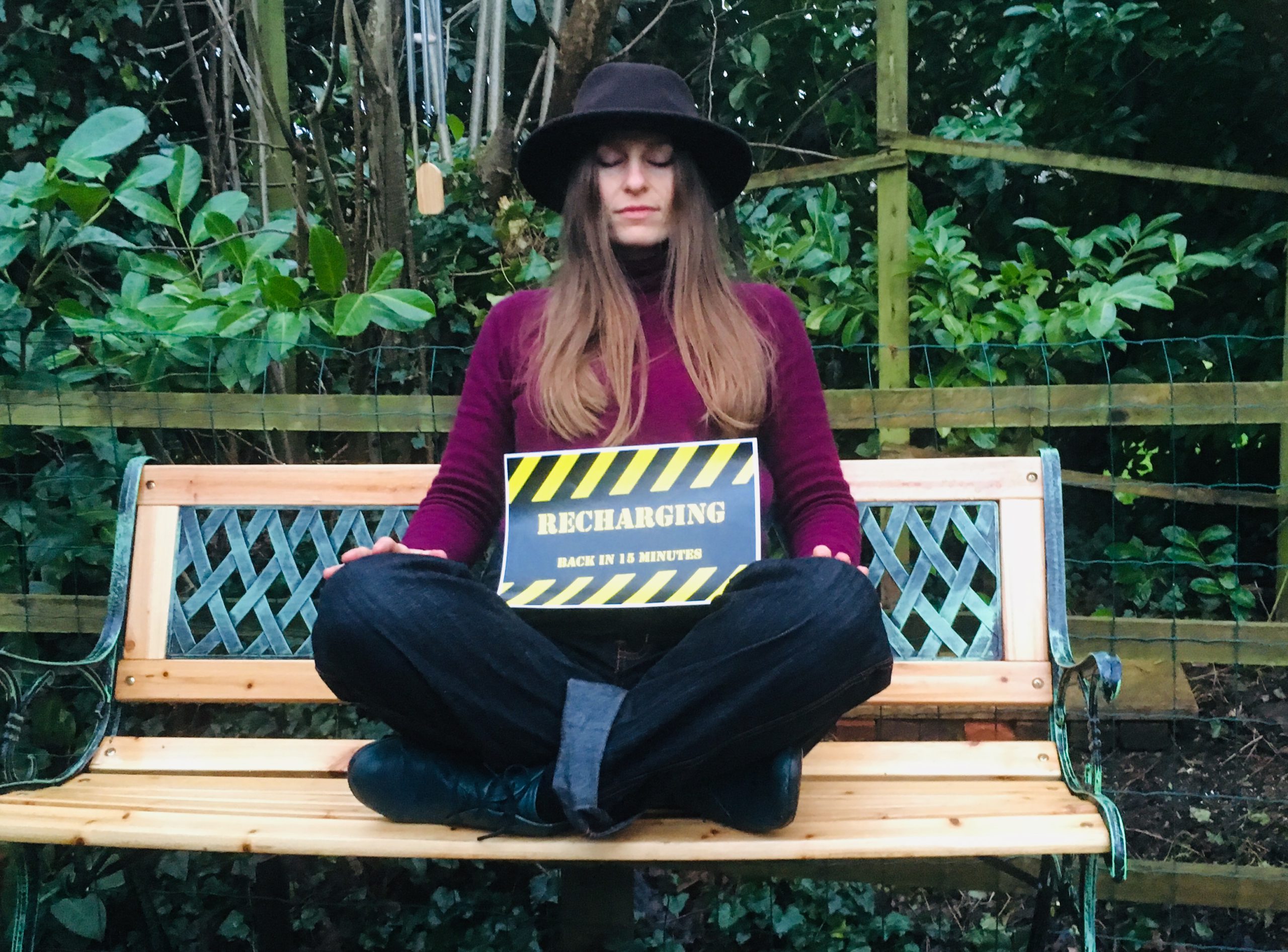
What’s even more exciting, meditation has been more and more viewed and approached as a productivity tool. If you commit to a regular practice, you can gain the kind of energy that you’d normally seek in caffeine, and have much more done. But unlike caffeine, with meditation, your sleep will get better and you might even need fewer hours of sleep that you’d need in the past. I’m happy to say that this has happened to me, and I describe my experience in my article The Physical and Psychological Benefits of Meditation, where I dive into the fascinating science behind this ancient practice.
A Ray of Hope for Coffee Lovers
If you managed to get to the end of this article, and you are a coffee lover (like me!), you may be wondering: ‘Can I ever enjoy my coffee guilt-free?’
Here’s a ray of hope for coffee lovers: If you become more conscious about drinking coffee and adopt a number of healthy habits, you may, at least to a certain extent, decrease the harmful effect of caffeine on your body. Timing and frequency play a huge role in this. Occasional morning coffee can be enjoyable and shouldn’t give you any dramatic side-effects, especially if you take good care of your body through sport, breathing practices, or meditation.
Seeing the bigger picture has helped me limit my caffeine intake. Now I treat myself to a morning cup of coffee about two times a week, but definitely not as a daily ritual, or even several times a day as in the past.
I hope that you have found this post helpful and, if you are a coffee lover, not too daunting. If you think you just cannot function without coffee, I would highly recommend trying breathing practices and meditation, and see that your need for daily caffeine boost will decrease naturally, without having to restrain yourself and feel you are missing out on one of your favourite treats.
Your thoughts on this topic are much welcome in the comments below!
Other posts you may like:
- Breathing Techniques for Better Health
- 20 Tips for Better Sleep
- The Physical and Psychological Benefits of Meditation
- 10 Things to Do When Feeling Down
- How to Stop and Prevent Panic Attacks
Recommended books:
- Stress Less Accomplish More by Emily Fletcher
- Bliss Brain by Dawson Church
- Titles by Sounds True Publishing
- Titles by Better Listen Publishing
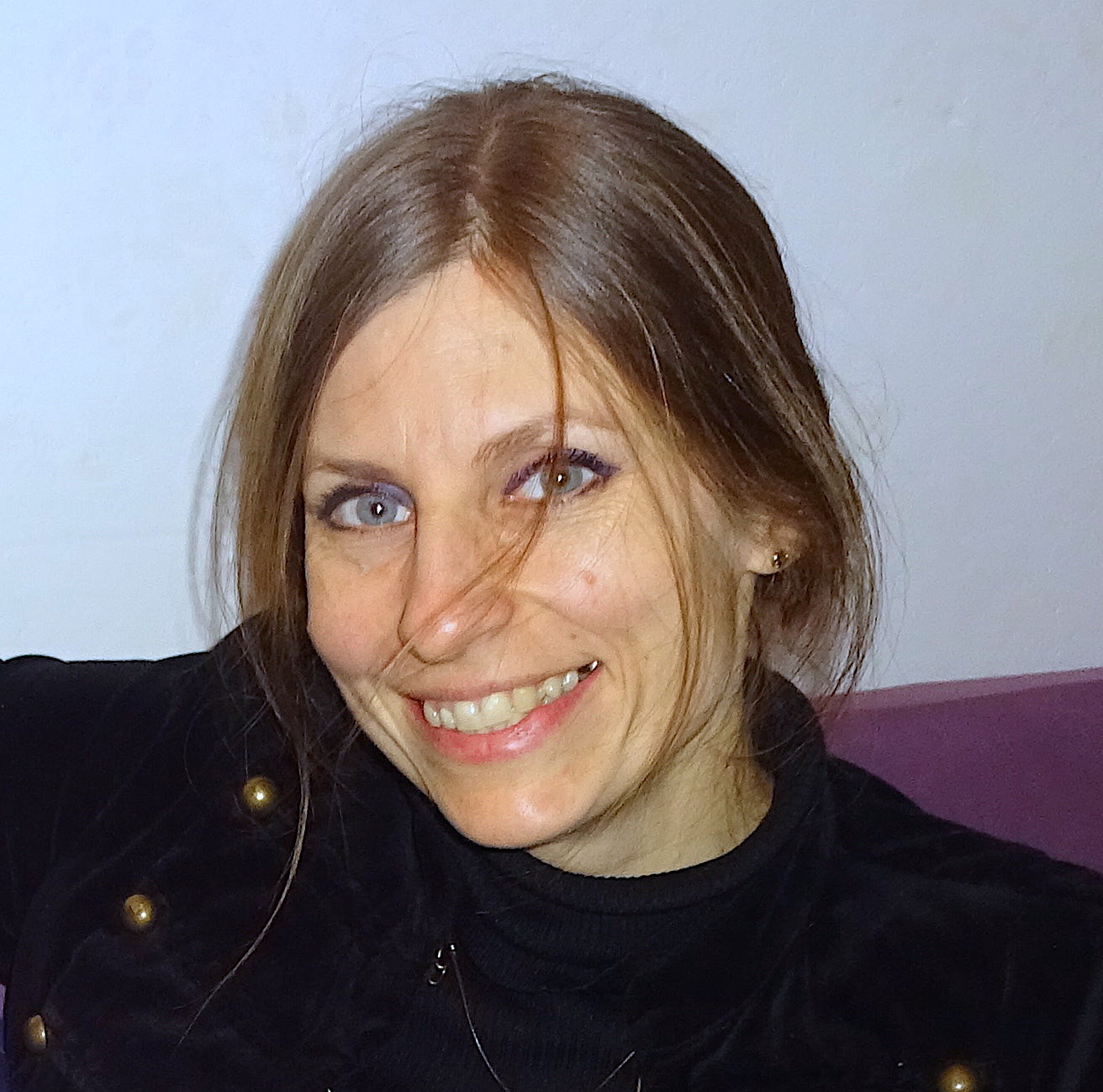
BY LUCIE DUN
This site has been built with DIVI, by Elegant Themes.
Disclaimer: This page contains affiliate links. This means that if you decide to make a purchase through my links, I will earn a small commission at no extra cost to you. (The full Affiliate Disclosure can be read here.) If you’d like to learn more about affiliate marketing, e.g. how to earn extra income from blogging and promoting products you like and would recommend to others, which is what I do, check out Wealthy Affiliate, my favourite platform for online marketers. You can create a free account, which will enable you to make your own website in a few simple steps, and host it with them – free of charge – for as long as you like. You can test it right now by trying their free website builder SiteRubix. Thank you for visiting!
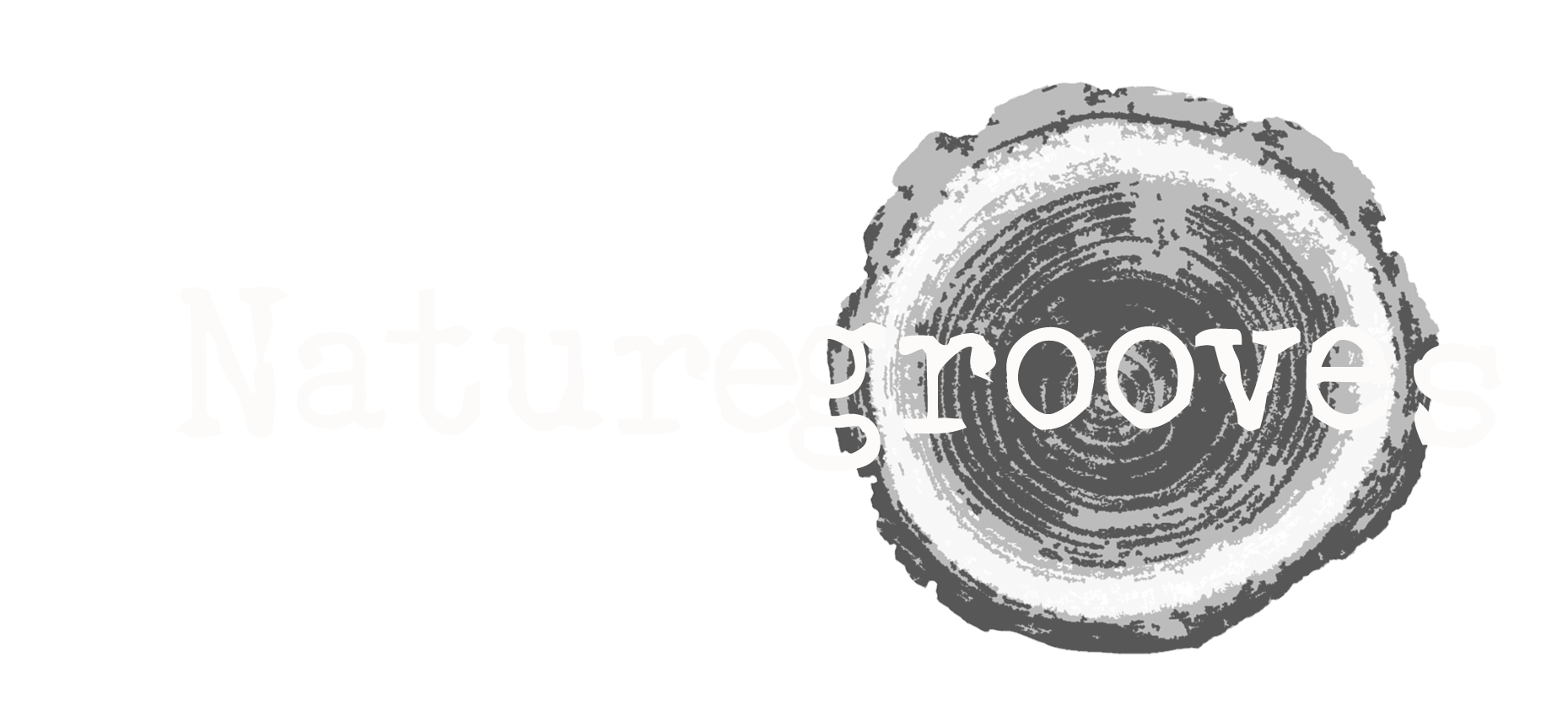

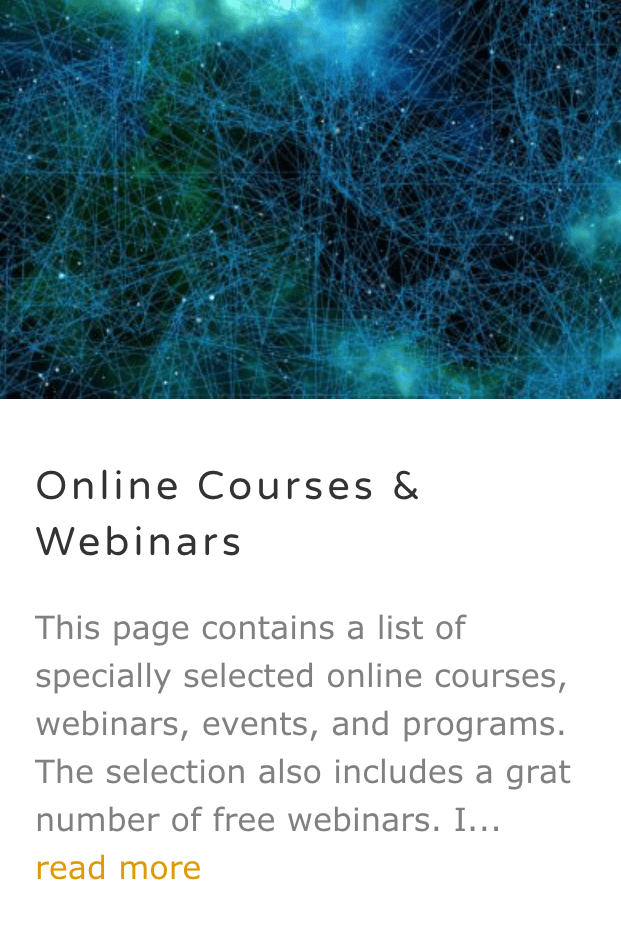
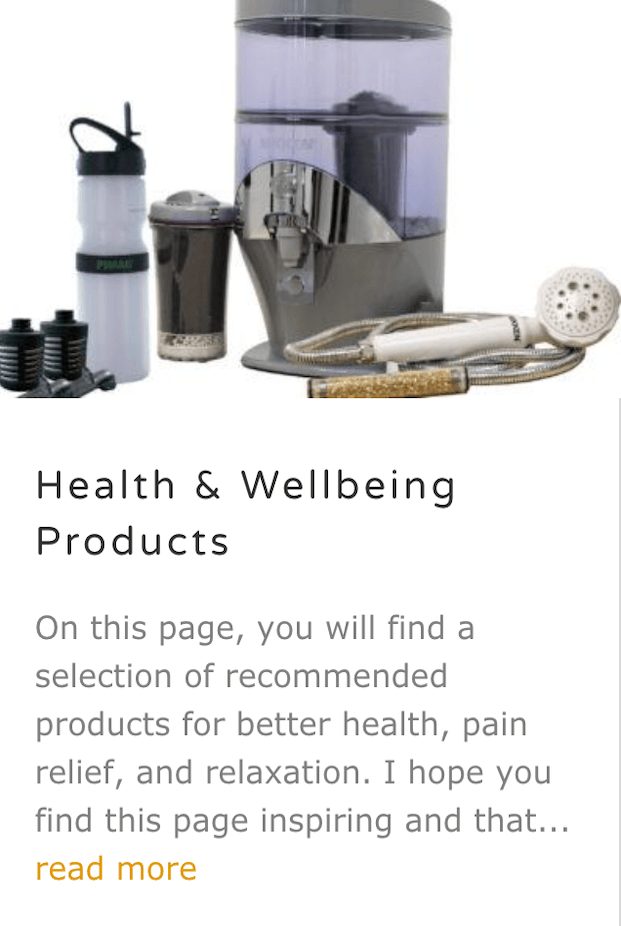
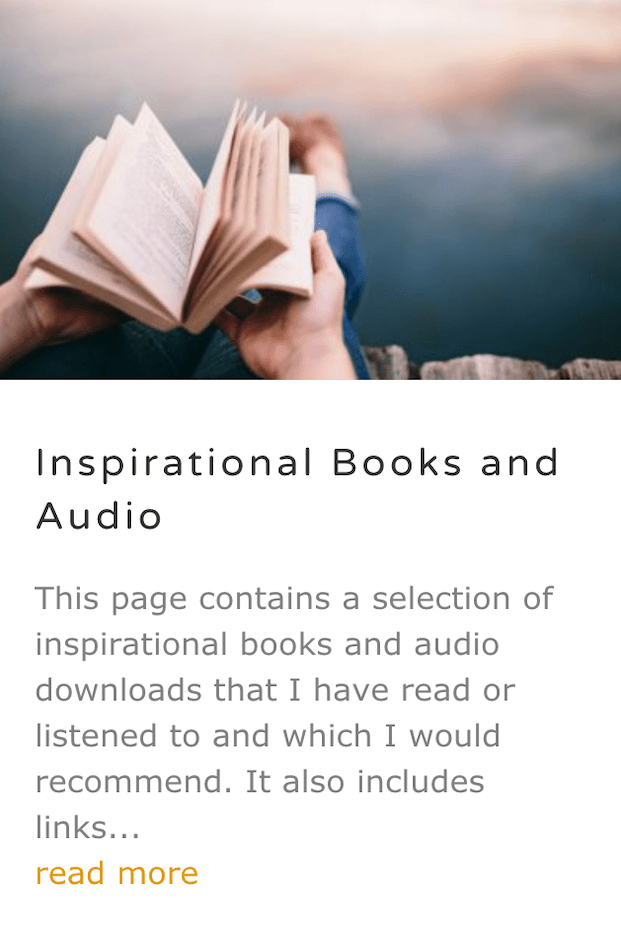




Thanks for this article. This article has reminded us once again about what they is to gain, positively and negatively, from drinking coffee. The topic is great and you have taken your time to judiciously deal with all that concerns the topic of the article. I do drink coffee, but very rarely, like once in a blue moon. But I have learnt more from this article, and it will enable me to educate people about the harms of drinking coffee excessively.
What nice feedback, Kelvin, thank you! Yes, I thought it was important to address the wonderfully aromatic drink which for many is a drug that is doing little good to their health. I. like you, drink it ( and really relish it) once in a blue moon. Early mornings are the best, especially in some nice cafe. One can have such a great time by allowing themselves this treat once in a while. But not as an every-day necessity, because it would spoil that nice occasional buzz. That’s what I’ve found out, that if I drink coffee too often that the really nice effects disappear and I’m just trying to feel normal, trying to get the caffeine to wake me up. But as you know, it’s a vicious circle, and more and more adenosine forms in your bloodstream, making you exhausted. Your immunity also lowers, which should be a big alert for everyone these days. Once again, cheers for your appreciative words and keep well.
Hello there, thanks a lot for sharing this really interesting article. I’ve found it very useful as it answered a lot of questions I’ve had about caffeine and how it really works in the body. I see a lot of people try to use tea as an alternative for coffee, but that doesn’t work for me. Well seeing the side-effects ‘ it can cause, I think I will try as much as possible to moderate my intake of coffee.
Hi Philebur, Thanks for your comment! The kind of information in this article has helped me feel much better – less tired and less anxious. I never made a connection with anxiety and coffee – in fact, I used to drink it to calm me down – but when my sleep became frequently disturbed because of that, and I started having panic attacks, I began to make a connection. I eventually replaced caffeine with meditation, and I’d highly recommend you try it out! (Without having to quit drinking coffee, if you love it). Thanks again for your feedback!
Hi,
From my online studies caffeine acts as a central nervous system stimulant, when it reaches your brain, the most noticeable effect is alertness. You’ll feel more awake and less tired, so it’s a common ingredient in medications to treat or manage drowsiness, headaches, and migraines, the effects is on one’s mental state, an intake of just 100 mg of caffeine can induce such symptoms as dizziness, anxiety, agitation and irritability, restlessness, insomnia, and headaches in some people.
Thank you.
Aluko.
Hi Aluko, Thank you for your contribution! I used to pop caffeine pills every time I was tired, which really backfired me in the long run. But back then I didn’t make a connection between my anxiety attacks and too much caffeine. Now, after having started meditation, I have minimal cravings for caffeine. I get so much more energy from meditation and its effects such as deeper sleep. Also, I follow Donna Eden’s Daily Energy Routine, which, if you’re interested, you can check it my article Your Health in Balance: Donna Eden and Energy Medicine. Thanks again for your comment!
Wow, this article really hit me differently because I take coffee on a daily basis and I also take it when I’m stressed or have to keep late nights, this article was really helpful because I didn’t know this much about coffee before reading this article. It was surprising and also confirmed the panic attacks I always have, thanks for this article
Hi Collins, wow, I’m so touched by your words. Like you, I used to drink coffee on a daily basis exactly because of the reasons you have stated. And I am no stranger to panic attacks either! You can read about some of my weird experiences with panic attacks in my article How to Stop and Prevent Panic Attacks. It can really be scary when you are losing control over everything, your perception of things, your breathing, your reality…so yes, excessive use of caffeine can lead to such episodes. I’ve quite successfully replaced my need of daily coffee with a daily cup of cocoa, using good quality 10% cocoa chocolate, sweetened with honey instead of sugar, and it’s so tasty, comforting, and still gives me a nice kick, but without the comedown. Chocolate is actually really good for your brain. I’m glad you’ve found this post helpful and that your awareness of the side effects of too much caffeine will help you regulate the use of coffee a bit, perhaps sometimes replacing it with chocolate. And then you’ll enjoy an occasional coffee even more, like me. Good luck!
Thank you, it took my wife weeks of hard work to stop my habit of drinking coffee every morning. Addiction to coffee can be worrisome. It got so bad that I need a cup of coffee to stay alert at work. I like the way you described it – temporary caffeine dopamine high. And it is not worth it, you lose sleep and stability
Thank you for sharing this, Parameter! I can well sympathize. At one point, I felt I could not function without a coffee on the way to work. It was like a necessary ritual to make my day more interesting. Sitting on the rush-hour bus at 7 am was far more comforting with a hot cup of late in my hands. I also liked the buzz it gave me. But a few hours later I would start feeling edgy, and by mid-afternoon, I would feel exhausted and down mood-wise. It took me a very long time to overcome this addiction, which was mostly psychological. The aroma and taste of good-quality coffee is simply irresistible, isn’t it! 🙂 But after attending a few online webinars with Jim Kwik (the author of Limitless) I learned that dark chocolate with a high percentage of cocoa is much better for you – it’s actually very good for your brain – so I started drinking 100% cocoa instead and it has eliminated my need of caffeine. Because it is equally comforting, delicious, and much more nourishing. Thanks again for your comment and good luck with finding the best way to kick-start your mornings!
I have to have the cup of coffee for me every morning. It is just a habit of mine to just start my day right and plus I love waking up to a coffee smells. I love that quote, that is for me as well, Life sure starts after coffee.
In my opinion, anything in excess is always bad. I do have to say that if I over the coffee, I get jittery as well. Also, I get acid reflux sometimes because I love my black coffee.
This is the first that I have heard of adenosine. Oh wow… I guess that I have to slowly cut down on coffee.
Hi Nuttanee, how I sympathize with you! 🙂 There’s nothing more enchanting in the morning than the smell of freshly ground, brewing coffee. I even got myself a shower gel with a smell of coffee, haha! I, like you, was quite surprised to hear about adenosine, and to be honest, I didn’t exactly like this new information – because I love coffee too much! However, it’s proved very useful, because it helped me to rethink my ‘coffee addiction’. At one time, I would never miss a morning in my local Costa. It was like a ceremony that would start my day. However, I often felt jittery and edgy afterward, and never made a connection that the excess caffeine was to blame.
Then in the afternoon I would get tired and head to another coffee shop for a ‘pick-me-up’ double espresso. I would have trouble falling asleep later on, and even if I slept enough, I’d wake up sleepy and lethargic. Well, now I know that this was because too much adenosine piled up in my system, telling me ‘you’re so tired, time to have a sleep!’ And I caused all this myself. So as soon as I connected the dots, I tied an experiment and eased up on my daily intake. Instead, I started meditating. I can’t tell you what difference it’s made in my quality of sleep, my reactivity, feeling of inner wellbeing. and much more.
So now I have a coffee occasionally, but not on a daily basis, and definitely not later in the day, or several times a day. And because of this, when I o drink it, it tastes twice as better and gives me a nice kick (which would not happen if I drank it too often). Thanks for your comment!